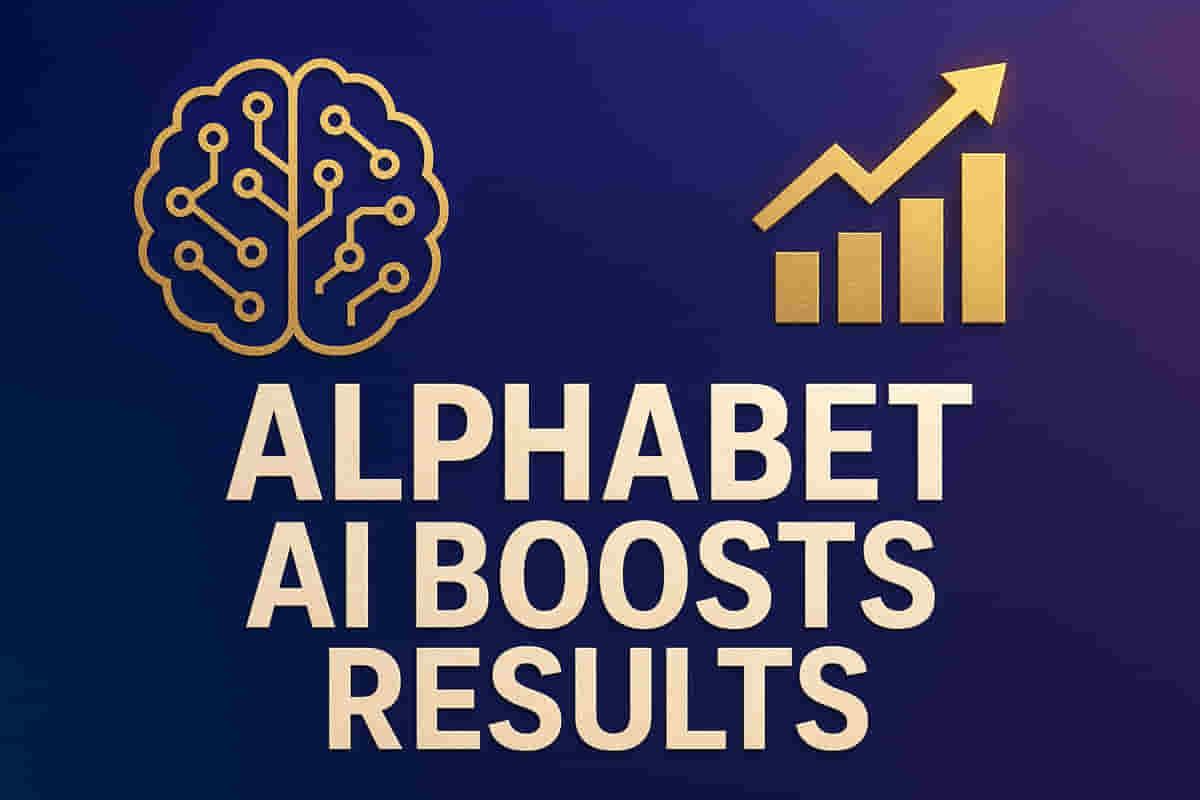Alphabet's AI Demand Fuels Strong Financials, Boosting Capital Expenditure Plans
Tech
|
30th October 2025, 1:38 AM

▶
Short Description :
Detailed Coverage :
Alphabet, Inc. announced robust financial results, with total revenue reaching $102.35 billion, surpassing analyst estimates of $99.89 billion. The company also reported an adjusted profit per share of $3.10, exceeding the expected $2.26. The surge in performance was largely fueled by the increasing demand for Artificial Intelligence (AI) technologies across its core businesses.
Google Cloud emerged as a key growth driver, posting 34% revenue growth to $15.16 billion, beating expectations of $14.72 billion. This growth was attributed to high enterprise demand for AI-powered infrastructure and data analytics services. Google Cloud's backlog of non-recognized sales contracts expanded significantly, reaching $155 billion, up from $106 billion previously. The unit is actively competing with major rivals like Microsoft Azure and Amazon Web Services, leveraging its Vertex AI platform and Tensor Processing Units (TPUs).
The company's core advertising business also showed resilience, with revenue increasing by 12.6% to $74.18 billion, outperforming estimates of $71.79 billion. This steadied performance allayed investor concerns about AI potentially disrupting Google's dominant search and advertising segments.
In response to this strong demand and future opportunities, Alphabet is substantially increasing its capital expenditure (CapEx) plans. CEO Sundar Pichai stated that the company is investing to meet customer demand and capitalize on growing opportunities. The projected CapEx for the year has been revised upwards to between $91 billion and $93 billion, a significant jump from previous projections of $75 billion and then $85 billion. This aggressive investment underscores Alphabet's commitment to building out its AI capabilities.
Impact This news has a significant positive impact on Alphabet's stock and the broader technology sector, particularly companies involved in AI development, cloud computing, and semiconductor manufacturing. The increased CapEx signals substantial investment in future growth, which could lead to further innovation and market expansion. However, it also highlights the intensifying competition in the AI and cloud space, with rivals also making significant investments and advancements. The robust performance of Google's core advertising business also indicates continued strength in the digital advertising market. Impact Rating: 8/10
Difficult Terms: Artificial Intelligence (AI): Computer systems designed to perform tasks that typically require human intelligence, such as learning, problem-solving, and decision-making. Revenue: The total amount of income generated by the sale of goods or services related to the company's primary operations. Profit per share: A company's net profit divided by the number of common shares outstanding. Cloud Computing: The delivery of computing services—including servers, storage, databases, networking, software, analytics, and intelligence—over the Internet ("the cloud") to offer faster innovation, flexible resources, and economies of scale. Capital Expenditures (CapEx): Funds used by a company to acquire, upgrade, and maintain physical assets such as property, industrial buildings, or equipment. Enterprise Demand: The need or desire for products or services from businesses, rather than individual consumers. Data Analytics: The process of examining large and varied data sets to uncover hidden patterns, unknown correlations, market trends, customer preferences, and other useful information. Backlog: Unfilled orders or uncompleted contracts that represent future revenue. Tensor Processing Units (TPUs): Custom-designed microchips developed by Google for accelerating machine learning workloads.